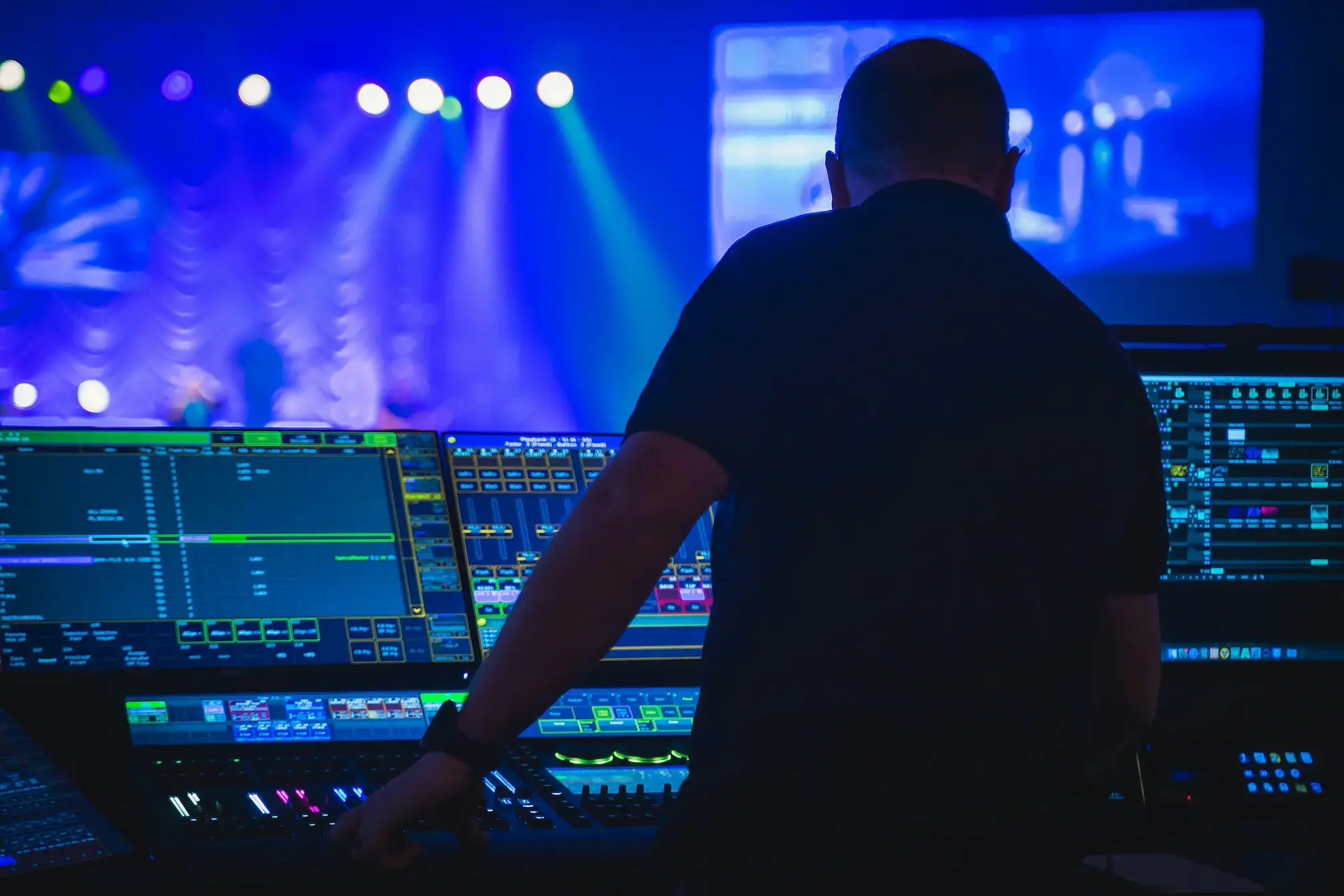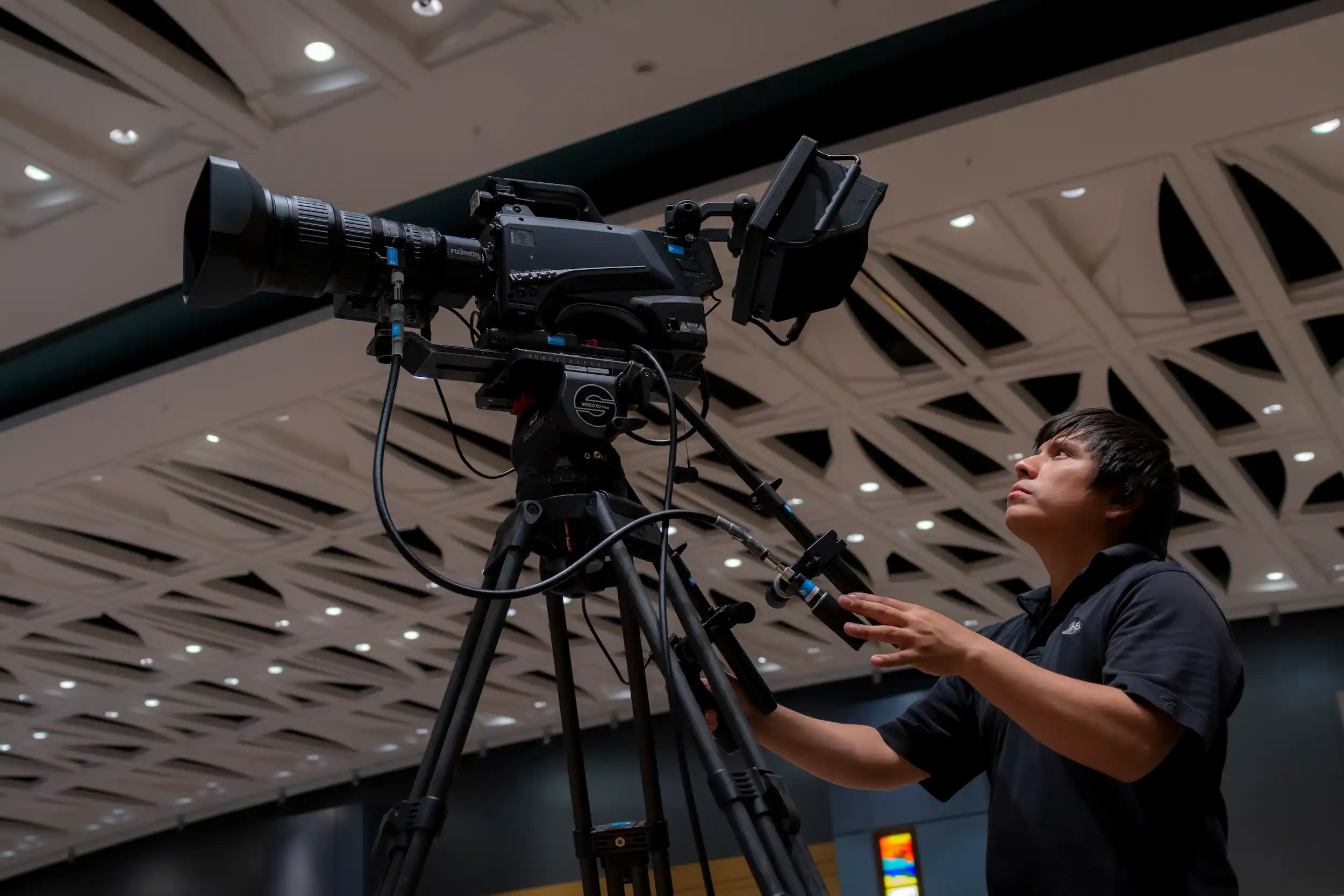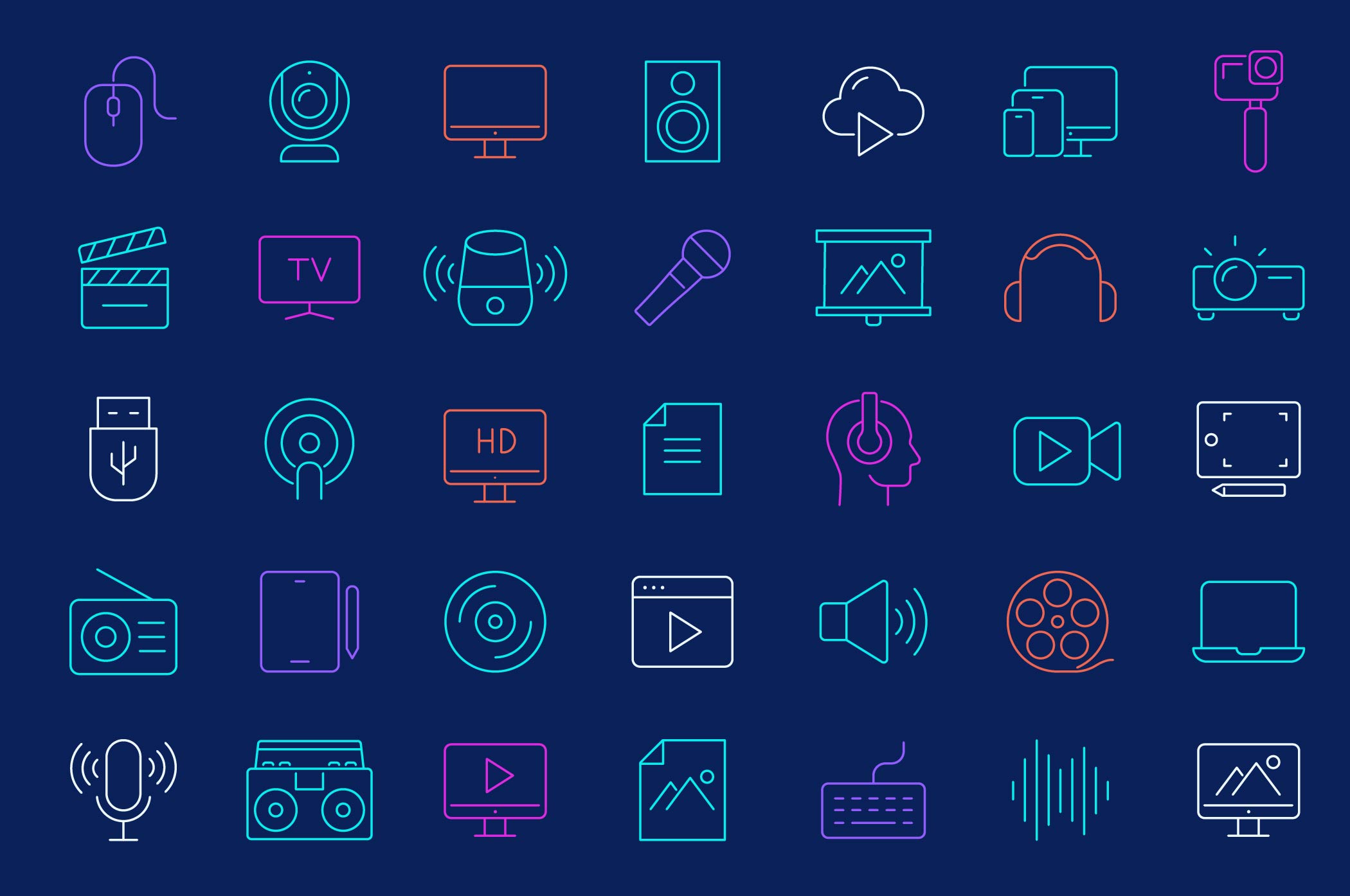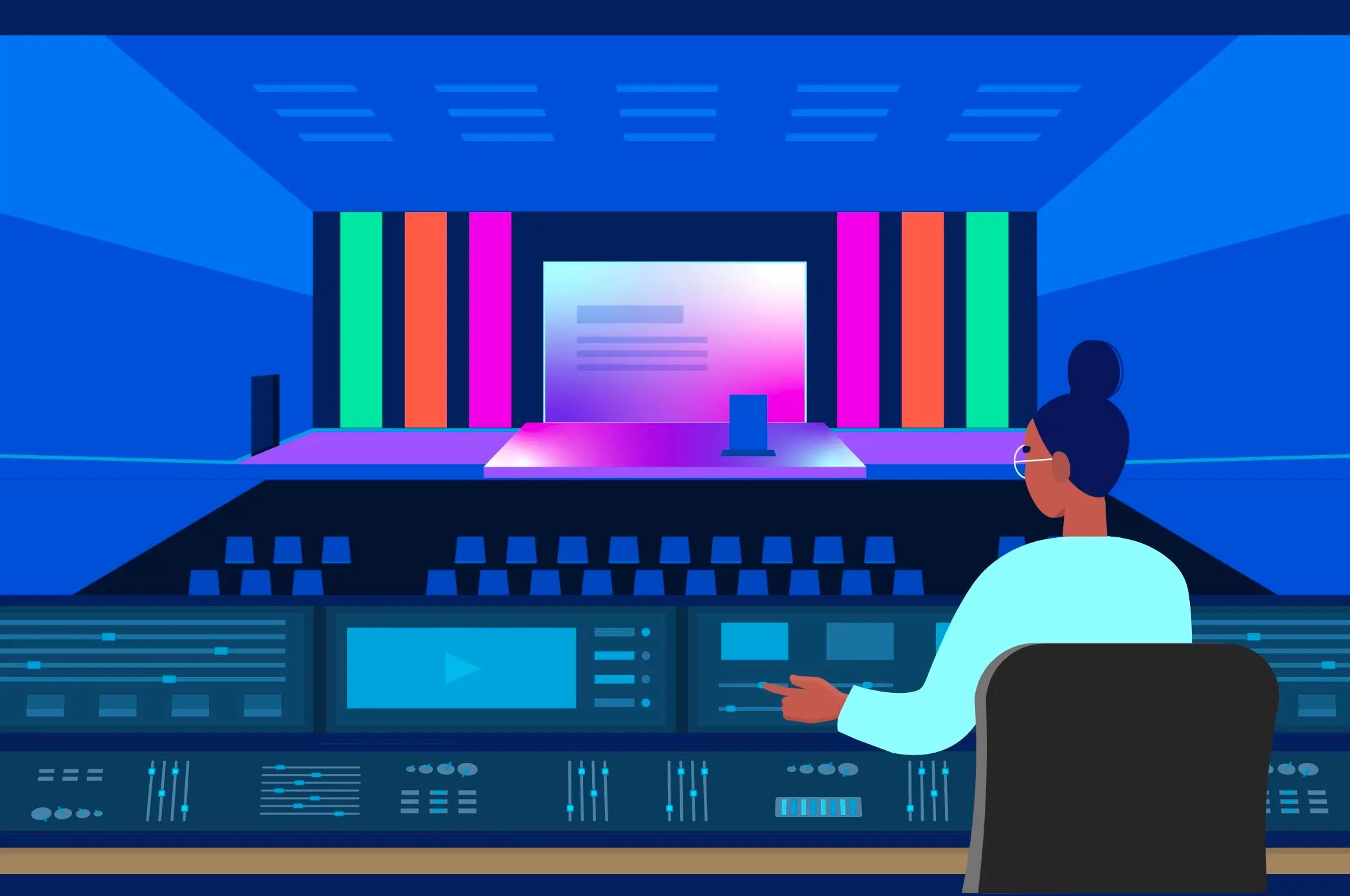From live conferences and corporate meetings to hybrid broadcasts and galas, no event runs smoothly without skilled audio visual support. AV Technicians are the hands-on experts who make sure everything sounds great, looks sharp, and works as planned. Whether you're considering a career in event production or just curious about the people behind the scenes, this guide breaks down what AV Technicians do and why their role is so vital.
What Is an Audio Visual Technician?
Definition and Role Overview
In the event production world, an Audio Visual (AV) Technician is a versatile professional responsible for setting up, operating, and maintaining the audio, video, and lighting technology that brings events to life. Whether it’s a live conference, a hybrid corporate town hall, or a high-energy product launch, AV techs are behind the scenes ensuring every word is heard, every image is crisp, and every transition is seamless.
Broadly speaking, an AV Technician is a generalist. Their skills span many areas of the audio-visual industry, but not every AV tech has the same background or focus. While many specialize in live event production, others work as in-house AV support for corporations, universities, hotels, or municipal venues. They might manage day-to-day tech in a boardroom or lecture hall rather than running front-of-house sound at a gala. This diversity makes AV tech a flexible career path with multiple entry points.
They’re not IT support, although they often work alongside IT teams. AV techs specialize in signal routing, equipment calibration, and live execution. As the project gets more complex, the level of technician increases from generalist to specialist. This is where titles such as Video Engineer, Technical Director, Media Technician, Front of House Engineer, or A1 (Lead Audio Engineer) are assigned to tasks. Remember that the role centers around one key mission: delivering a polished and reliable event experience.
If you thrive on working with diverse technologies, handling gear hands-on, and solving problems under pressure, AV tech is a career built on variety and impact.
Core Responsibilities of an AV Technician
Key Duties
In event production, AV technicians play a central role in both pre-event preparation and live execution. Core responsibilities include:
- Set Up and Operation of AV Systems: Whether it’s building out a multi-camera livestream setup or installing line arrays and stage monitors, AV techs manage all audio-visual gear to match the event scope and venue.
- Troubleshooting and Live Support: Events move fast. AV techs are the first to respond when a mic fails, a slide won’t advance, or a speaker’s audio drops out. Quick thinking and calm execution are essential.
- Signal Routing and System Configuration: From stage input to control booth output, AV techs ensure all audio and video signals are routed correctly across mixers, processors, switchers, and amplifiers.
- Monitoring and Adjusting Live Feeds: During shows, techs constantly monitor sound levels, video resolution, lighting cues, and transitions to maintain consistency across the event.
- Audio Mixing and Lighting Control: For many events, especially smaller productions, AV techs wear multiple hats such as managing soundboards, cueing lights, and switching cameras simultaneously.
- Equipment Maintenance and Inventory Management: Post-event, techs inspect, service, and pack equipment while tracking firmware updates, battery health, and wear-and-tear for future readiness.
Types of AV Technicians in Events

Event AV Technician
Often the first on-site and the last to leave, event AV techs are generalists who can build a show from the ground up. They handle everything from projector alignment and speaker positioning to stage lighting and cable management. They're the backbone of setups, equipped to transform raw spaces into high-performance environments.
Front of House (FOH) Engineer
An FOH (Front of House) engineer is the sound gatekeeper for live entertainment-style events. From a central spot in the audience, they control how the entire room hears each speaker, vocalist, or instrument. Whether it’s a corporate keynote or an entertainment-driven show, FOH engineers manage large PA systems, suppress feedback, and make real-time EQ adjustments to keep everything sounding balanced.
Audio Engineer (A1)
A1 engineers lead audio for corporate events, meetings, and conferences, often running clean feeds for recording or streaming. They handle mic assignments, lavalier placement, gain structure, and intercom systems to ensure panel discussions and Q&A sessions come through clearly across the room and remote platforms.
Broadcast Technician
These techs specialize in capturing and distributing video and audio feeds to streaming platforms, webcasts, or overflow rooms. They're skilled in using encoders, video switchers, sync tools, and network interfaces to deliver smooth remote experiences.
Systems Integration Technician
While less involved in live execution, systems integrators design and install permanent AV systems in conference centers, boardrooms, and performance venues. Their event crossover comes in helping clients with pre-set automation, digital signage, and control panel customizations.
Skills Required for AV Technicians
Technical Skills
AV techs working in events have a general understanding of a wide tech stack including:
- Live audio mixing with analog and digital soundboards
- Video routing and switching using HD-SDI, HDMI, or NDI protocols
- Lighting setup essentials, as well as the control system
- RF coordination for wireless mics and intercoms
- Network configuration for hybrid or streaming equipment
- Video projection, screens, and drape setup
- Camera setup and streaming encoder tuning
They also need to understand stage layouts, power distribution, timecode syncing, and safety best practices, especially when rigging or flying gear in complex venues. Understanding is not necessarily Mastery, and the best AV Tech works effectively with specialists while developing their skills.
Soft Skills
In fast-paced event environments, these qualities are as important as technical know-how:
- Clear communication with producers, presenters, and venue staff
- Problem-solving in real-time with limited setup windows
- Adaptability to venue variables or last-minute client changes
- Composure under pressure during live shows
- Collaboration with lighting designers, video engineers, and event managers
- Physical endurance to manage heavy equipment
- Mental endurance to remain focused
How to Become an Audio Visual Technician

Education Pathways
Most AV techs in event production start with a high school diploma, but continued education is highly recommended.
- Bachelor's Degree in Communications, Theater and Audio Engineering is commonly available
- Specialized degrees in broadcast technology or AV production
- Hands-on workshops and vendor-specific programs
Many techs learn through internships, on-the-job training, or working entry-level gigs with event production companies like HB Live.
Certifications
Credibility matters when you’re trusted to run high-profile events. Popular industry certifications include:
- CTS (Certified Technology Specialist) by AVIXA
- CTS-I for installation and CTS-D for design (Sometimes required for an in-house corporate AV Technician)
- Manufacturer certifications from Yamaha, QSC, Shure, or Audinate
- OSHA-10 or OSHA-30 may be required at certain venues
- ETCP-ESTA rigging safety courses for flying gear or working at height
Continuing education is key as technology evolves quickly with new wireless standards, AV-over-IP workflows, and software platforms emerging every year.
Gaining Experience
- Start with internships or freelance gigs in AV rental or event production
- Volunteer at local theaters, churches, or campus events to build real-world skills
- Shadow experienced techs and ask to run smaller parts of the event, such as Q&A mics or confidence monitors
- Develop a specialty over time, whether it’s FOH sound, livestreaming, or LED wall management
Summary
If you enjoy working with technology, problem-solving on your feet, and seeing your work come to life in real-time, a career as an AV Technician in events might be your calling. It’s a high-energy role that combines technical depth with creativity and offers the chance to contribute meaningfully to events that inform, inspire, and entertain.
Have you been on events and noticed these skilled professionals? Share your appreciation for the effort that got them there. Often invisible, mostly unsung, they are the heroes of your show.
Whether you’re running the audio for a Fortune 500 conference or managing video feeds for a hybrid event, AV techs make it all possible. The gear may change, but the need for calm, capable technicians remains constant.



